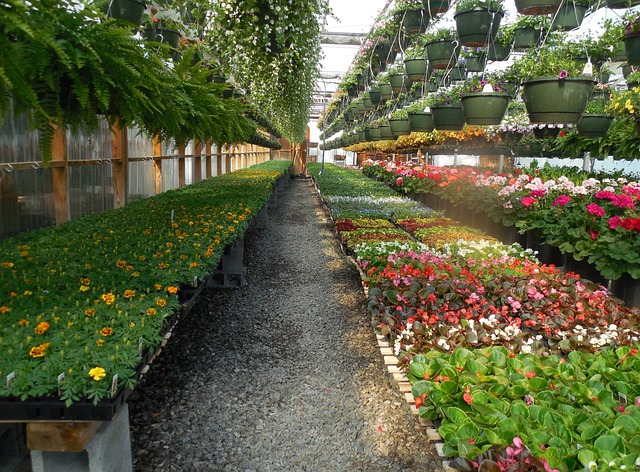All Categories
Featured
Table of Contents
The Role of Bees and Pollinators in Organic Gardening
Bees and other pollinators play a crucial role in organic gardening. They are responsible for transferring pollen from the male parts of a flower to the female parts, resulting in the fertilization and formation of fruits and seeds. Without pollinators, many plants would not be able to reproduce, leading to a decline in biodiversity and the loss of valuable crops.
One of the main reasons why bees and other pollinators are essential in organic gardening is their ability to increase fruit set and yield. Studies have shown that when bees are present in a garden, there is a significant increase in the number of fruits produced by plants. This is because bees efficiently move from flower to flower, transferring pollen and ensuring successful pollination.
In addition to their role in plant reproduction, bees also contribute to the overall health of an organic garden. They are attracted to nectar-rich flowers and in the process of collecting nectar, they inadvertently transfer pollen from one flower to another. This cross-pollination increases genetic diversity in plants and improves their overall health and resilience.
Furthermore, bees and other pollinators are indicators of a healthy ecosystem. Their presence in a garden is a sign of a diverse and thriving habitat. Organic gardening practices, such as avoiding the use of synthetic pesticides and providing a variety of native plants, can help attract and support these important pollinators.
To attract bees and other pollinators to your organic garden, consider planting a variety of flowers that provide nectar and pollen throughout the growing season. Native plants are particularly beneficial, as they have co-evolved with local pollinators and are well-suited to their needs. Providing nesting sites, such as bee houses or leaving areas of bare soil, can also help support these important creatures.
By understanding and appreciating the role of bees and pollinators in organic gardening, we can create healthier and more sustainable gardens that benefit both humans and nature.
Helpful Links:
Recommended Product:

The Art of Composting: Enhancing Soil Health in Organic Gardens
In organic gardening, composting plays a crucial role in improving and maintaining healthy soil. Composting is the process of decomposing organic materials, such as kitchen scraps, yard waste, and manure, to create nutrient-rich humus that can be added to the garden. This natural fertilizer not only supplies essential nutrients to plants but also promotes beneficial microbial activity, improves soil structure, and enhances moisture retention.
To start composting, it's important to have a designated compost bin or pile in your garden. This can be a simple DIY structure made from wooden pallets or a specialized compost bin available in the market. The key to successful composting is finding a balance between the "green" and "brown" materials. Green materials include fresh grass clippings, fruit and vegetable scraps, and coffee grounds, while brown materials consist of dry leaves, straw, and wood chips.
Layering these materials, along with occasional turning and moisture management, will accelerate the decomposition process. As the organic matter breaks down, beneficial organisms, such as earthworms and bacteria, will thrive, further enriching the compost. Avoid adding meat, dairy products, and oily substances, as they can attract pests and slow down the composting process.
Once the compost has reached a dark, crumbly texture and has a pleasant earthy smell, it's ready to be incorporated into the garden. Simply spread a layer of compost over the soil surface or mix it gently into the planting beds, ensuring that it reaches the root zone of your plants. Regular application of compost helps maintain soil fertility, supports healthy plant growth, and reduces the need for synthetic fertilizers.
By embracing the art of composting, organic gardeners can harness the power of nature's recycling system and create a sustainable, nutrient-rich environment for their plants.

The Role of Organic Gardening in Climate Change Mitigation
Climate change is a pressing global issue, and organic gardening can play a significant role in mitigating its effects. By adopting organic practices, gardeners can minimize the release of greenhouse gases, reduce soil erosion, and conserve water resources.
One of the key ways organic gardening helps combat climate change is through carbon sequestration. Organic soils have higher levels of organic matter, which acts as a carbon sink. When plants undergo photosynthesis, they absorb carbon dioxide from the atmosphere and store it in the soil as organic matter. This process helps remove CO2 from the atmosphere, a major contributor to global warming.
Furthermore, organic gardening uses natural fertilizers and avoids synthetic chemicals, reducing the release of nitrogen and phosphorous-based compounds known to contribute to greenhouse gas emissions. Chemical fertilizers often require significant energy inputs for production and transportation, which also contribute to carbon emissions.
Another way organic gardening helps combat climate change is through improved soil health. Organic practices promote the use of cover crops, crop rotation, and composting, which enhance soil structure and water infiltration. This allows the soil to retain more moisture, reducing the need for irrigation and helping conserve water resources.
Overall, organic gardening provides a sustainable and eco-friendly approach to food production that can contribute to climate change mitigation. By adopting organic practices in our gardens, we can make a positive impact on the environment and strive towards a more sustainable future.
organic gardening - Companion Planting: The Key to Successful Organic Gardening

Mulching Companion Planting: The Key to Successful Organic Gardening
More about organic gardening: Original Articles
Natural Gardening: Creating a Pollinator-Friendly Organic Garden
Companion Planting: The Key to Successful Organic Gardening
Copyright © 2024 organic gardening - organic gardening All Rights Reserved.
Latest Posts
Understanding the Core of Your Credit Score
The Art of Layering for Winter Hiking
Statue of Liberty and Ellis Island: A Journey Through American History